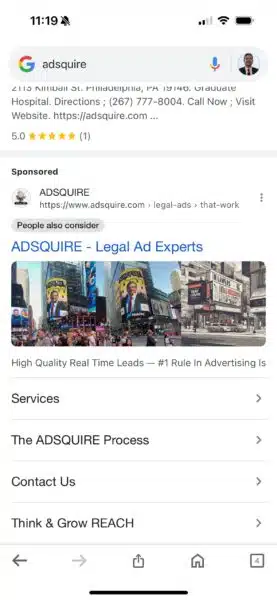Google is trialing a new People Also Consider badge on ads served within branded search results.
The label appears as a grey box positioned underneath the company name, logo and URL as demonstrated in the screenshot below:

The feature is not clickable, and so the purpose of it is causing confusion amongst PPC marketers.
First spotted. The new ad badge was first spotted by Anthony Higman, CEO of online advertising agency Adsquire. He shared his thoughts on X:
- “Google Ads is getting weird AF. ‘People Also Consider’ badge on a search for our brand.”
- “What else is there for people to also consider on a search for my brand? Or is this a sign of things to come?”
- “Is this what they have been doing by matching all branded terms to keywords? Are they really about to throw all of us into our competitors’ ad auctions unsolicited and then just toss a ‘People Also Consider’ badge on those ads and call it a day?”
- “I’m thinking it’s why they have been matching brands to keywords for the last two years. If they are really about to do what I think they are going to do with these, it is NOT clever or innovative, its desperate and grimy.”
What Google is saying. Google did not immediately respond to Search Engine Land’s request for comment.
Get the daily newsletter search marketers rely on.
Why now? The new badge comes just a week after Shalom Goodman spotted Google testing a “Related to your search” badge on search ads. This label also appeared as a grey box positioned underneath the company name, logo and URL as demonstrated in the screenshot below:


Google is yet to offer any insight or further explanation around this feature.
Why we care. If Google starts forcing companies into their competitors’ ad auctions, it could be bad for business. Customers might see competitors’ ads when searching for your brand resulting in you losing a potential sale. Additionally, paying for ads on competitor brand searches are unlikely to reach high-value customers as they are looking for a specific brand, not just a service – which ultimately creates a poorer user experience.
New on Search Engine Land








